Domestic Politics Archive
Free Newsletter
When she was first named foreign minister last November, I, like most observers, noted Michèle Alliot-Marie’s reputation as a professional, the kind of minister who could be counted on to take care of business and not make headlines. She arguably delivered on the first count, but was done in by her abject failure to deliver on the second, with the never-ending revelations from her ill-fated Christmas holiday in Tunisia fatally undermining her legitimacy as the face of France’s foreign policy. Nevertheless, it’s worth repeating that Alliot-Marie’s failings were a function of her professionalism — that is, they reflect the standard […]
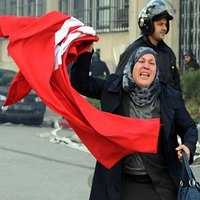
Much analysis of the wave of unrest sweeping the Middle East has identified economic hardship as a crucial motivation for the uprisings. Many Middle East experts pointed to unemployment and the rising price of food in Tunisia to explain that country’s uprising. The same experts pointed to unemployment and mass poverty to explain the subsequent Egyptian uprising. But after Egyptians successfully ousted Hosni Mubarak, unrest subsequently spread to Libya, Algeria, Iran, Bahrain, Yemen and Jordan, countries with very diverse economic conditions. Standards of living in Bahrain and Libya, for example, are much higher than in Egypt and Yemen. Furthermore, the […]
On Wednesday, 20 deputies of Ukraine announced a new political faction called “Reforms for the Future.” The new union is mostly made up of former members of the Yulia Tymoshenko Bloc, supporting the reforms of President Viktor Yanukovych, as well as its own reforms, such as a state-run health care plan.
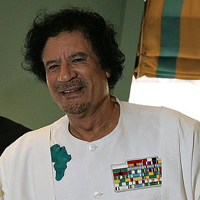
For players of the decades-old parlor game of divining succession in despotic Arab regimes, one rule never varied: The current dictator would personally choose his successor, almost always selecting one of his sons to head the regime after his death. Until this week, that dynastic pattern seemed certain to apply to Libya’s Col. Moammar Gadhafi, whose sons have spent years seeking their flamboyant father’s favor and jockeying for position within that most peculiar of regimes. The eccentric, histrionic and often-buffoonish Gadhafi has provided four decades of outrage, disbelief and even entertainment for outside observers. For those living under his rule, […]
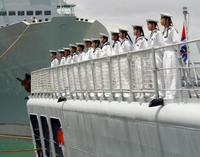
BEIJING — Following a period of considerable success and strategic evolution, China’s foreign policy has been marked by a less coherent and less constructive approach to international relations over the past year. Nowhere has this shift been more pronounced than on the Asian littoral, a key arena in the country’s international rise, where China’s opaque naval expansion and increasingly abrasive behavior have begun to undermine previous strategic gains. China’s naval modernization is part of an ongoing force-wide attempt to enhance national military capabilities, particularly in nonconventional warfare and peacetime operations. The People’s Liberation Army Navy (PLAN) also has a stated […]
Niger held a first-round presidential election in January that will go a to runoff between the two leading candidates March 12. The vote is expected to bring an end to military rule in the West African country, following a February 2010 coup. In an e-mail interview, Alex Thurston, a doctoral candidate in the Religion Department at Northwestern University and author of the Sahel Blog, discussed Niger’s election. WPR: What are the ethnic, political and institutional fault lines in Niger, and which of the main candidates represents them? Alex Thurston: News reports have emphasized political fault lines in the presidential election, […]
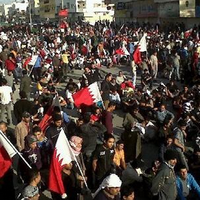
Bahrain may be the 163rd most populous country on Earth, but for the past week it has taken center stage, along with Libya, in the unfolding drama shaking the Arab world. While the island kingdom carries little of the weight and influence of a political and cultural power like Egypt, the events in Bahrain have the potential to reshape the geopolitics of the Gulf, with knock-on effects for global oil markets and the U.S.-Saudi relationship. Following the uprisings in Tunisia and Egypt, disgruntled Bahrainis took to the streets to protest corruption, institutionalized racism and the lack of political rights and […]
The future of Libya appears to be a knife-edge, as airforce fighter jets have bombarded the capital, Tripoli, reportedly on the orders of leader Muammer Gaddafi. Witnesses in Tripoli say that mercenaries are roaming the streets, firing at anyone they see in a bid to dissuade people from demonstrating against Gaddafi.
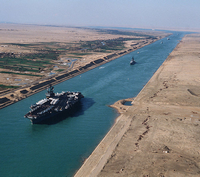
The current wave of upheaval in the Arab world that has unexpectedly swept away the long-lasting presidents of Tunisia and Egypt and which may trigger regime changes all over the region has also steepened the ongoing rise in oil prices and raised fears about the stability of the global oil market. On Jan. 31, after five days of upheaval in Egypt, the price of a barrel of Brent crude on the London-based Intercontinental Exchange passed the $100 threshold for the first time since the financial meltdown of September 2008. Brent crude is currently trading for more than $105, while prices […]
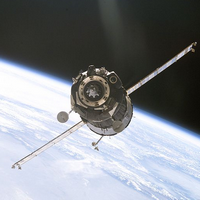
Several additional national security strategies have been issued in recent weeks, including the publication earlier this month of both an updated National Military Strategy and the first-ever National Security Space Strategy. Though these texts shed additional light on the priorities and perspectives of the Obama administration’s national security team at mid-term, they serve other purposes than just articulating strategy. The National Military Strategy (.pdf) starts by describing the security environment in which the Pentagon operates, the U.S. military’s core objectives and the Defense Department’s strategies for pursuing them. It then assesses the adequacy of U.S. military capabilities to achieve these […]
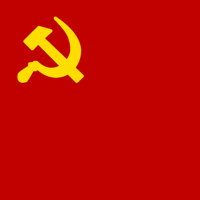
The 2008 and 2010 Latinobarometro Polls, taken in 18 countries of Latin America, underline the fact that, even though the GDP of most Latin American countries has been improving since 2001, there are deep flaws in democratic political systems throughout the region. The relative popular dissatisfaction stems from deep-rooted socioeconomic inequalities as well as distrust and lack of confidence in police forces, legislatures and political parties. There is also a growing popular consciousness of unfulfilled rights, leading to rising demands for their enjoyment. Peruvians are especially disgruntled. Peru’s economy has grown faster than any of the other bigger countries in […]
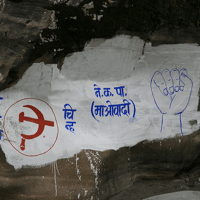
Left-wing radicalism in South Asia is stronger than at any time since the Cold War, with both India and Nepal challenged by Maoist uprisings. Because it impacts one of the world’s emerging powers, the situation in India is perhaps of greater global significance. But the Nepal case is just as instructive, if not more so. For Nepal’s largely impoverished population of 25 million, which lives in a territory the size of Florida, a bloody decade of people’s war has since 2006 given way to “peace.” Yet to call the situation in Nepal peace is appropriate only if one believes that […]
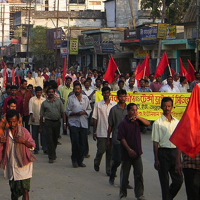
In July 1967, at the height of Mao Zedong’s “Great Proletarian Cultural Revolution,” an editorial appeared in the Chinese Communist Party newspaper the People’s Daily heralding “a peel of spring thunder” sweeping across India. An uprising of tea-plantation workers led by Maoist militants in Naxalbari, a poor and remote district near India’s Darjeeling region, had come to Beijing’s attention. Inspired by the Chinese revolution, the militants imagined that Naxalbari was to be the beginning of a popular revolt that would end with the red flag flying over New Delhi. Such dreams were premature. Within months, the government had brutally suppressed […]
